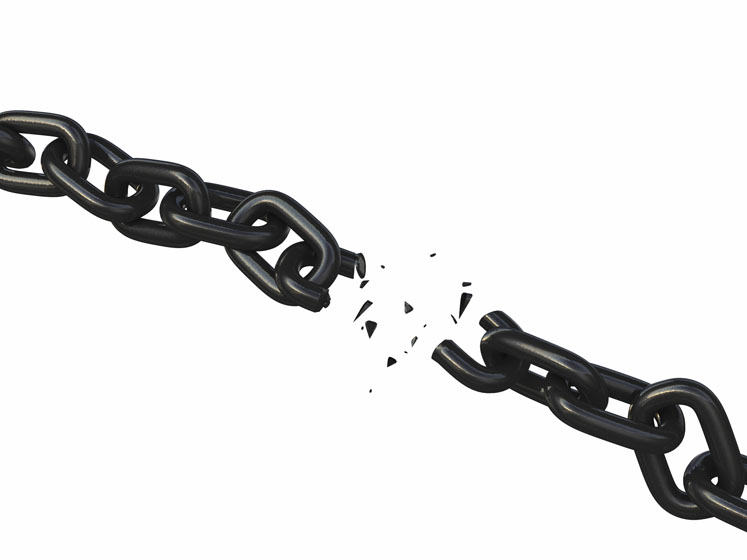There are a number of reasons why the problem is getting worse and more widespread. Greater access to medicines — including the ability for individual customers to buy products for themselves online — and the popularity of dietary supplements are just two of the factors that are creating opportunities for counterfeiters to enter the market.
Law enforcement efforts have grown in response and recent successes indicate the dramatic scale of the counterfeit pharmaceuticals problem we are currently facing.
More than three million medicines and medical devices were seized in 2021 in a co-ordinated international operation, representing only a percentage of the total number of counterfeits still on the market.
In the UK and Europe, law enforcement authorities have recognised the scale of this problem and ramped up efforts to address it. At the same time, businesses in the UK also have a responsibility to perform due diligence checks before buying products and to avoid getting caught in the supply chain of counterfeit products.
How big a problem are counterfeit medicines and pharmaceuticals?
In a recent report, Europol identified the rise of counterfeit medicines and medical devices as one of its key priority areas during the next few years.
Many of the products currently on the UK market originate in Europe or are trafficked across the continent — and co-operation between law enforcement authorities in the UK, the EU and beyond are vital in measuring and tackling the problem.
Operation Pangea, an international effort coordinated by Interpol, led to the seizure of more than three million medicines and medical devices worth more than £9 million.

The UK shut down or blocked access to 113,000 websites that were offering illegal medications during this operation, which indicates the role that the Internet is playing in facilitating the rise of counterfeits.
Unlike pharmacists or other professionals, consumers are not in a position to recognise counterfeit medicines, nor to protect themselves against the consequences for their health.
More than 15,000 counterfeit medicine packs were found to have entered the UK alone between 2020 and 2022, according to research from the Medicines and Healthcare products Regulatory Agency (MHRA).
Although authorities can take down websites, criminal actors can reestablish these marketplaces with relative ease, and it is hard to take action to prevent counterfeits from being made.
Often, they are produced in remote laboratories in Europe, which are hard to find and shut down. Even with large numbers of products being seized, there is still a flood of counterfeits on the market ... and businesses need to take action to avoid propagating this crime, whether unintentionally or otherwise.
How can businesses protect themselves and their customers from counterfeits?
Pharmacies and other businesses that trade in pharmaceutical and medicinal products must remain vigilant and take any steps necessary to ensure they only buy genuine products from legitimate suppliers.
There are several good distribution practices that these organisations should uphold to help prevent fakes from reaching customers, the foremost of which is to undertake robust qualification checks on any new suppliers you work with.
In fact, qualification checks are not only relevant for new suppliers; businesses should perform them regularly on all suppliers, even where there is no suspicion.
This can help to ensure that the company is legally protected in the event that counterfeit goods are found, and also prevent these items from reaching the market in the first place.
You should carry out additional checks if there is any cause for suspicion. For example, if a supplier is offering a lot of high-value, low-turnover products that would normally only be supplied to hospitals, this could be an indication that the products are not genuine.
If you receive an unsolicited offer from a supplier, particularly if the medicines or devices are particularly high-value, this may also be a warning sign.
There are other questions you can ask to help you make a judgement about whether or not you trust this supplier: do they seem to be in a hurry to turn products around quickly? Are they asking for payment immediately, with no option for credit? Do you know the company, and is it licensed to sell the products in question?
It is important to ask these questions even though, in many cases, the offer will turn out to be legitimate. If you have concerns, you can contact the MHRA to report your suspicions.
If businesses are found to be involved in selling counterfeit products, they may be charged with a crime whether the involvement was intentional or not.
Ultimately, a failure to thoroughly investigate suppliers or a mistake in procurement could lead to serious legal consequences. If your business is under investigation for supplying counterfeit products or a related offence, it is vital to speak to a solicitor.
Your organisation will need to begin building a defence straight away; as we have noted above, the scale of this problem is such that you can expect serious penalties if you are charged and convicted.
As law enforcement agencies in the UK and Europe step up their efforts to tackle the problem of counterfeit medicines and medical devices, stakeholders in the industry need to match this with much stricter diligence in establishing the qualifications of suppliers.
Not only will this help to remove illegitimate products from the market and prevent harm to customers; it will support these businesses to maintain compliance with the law and avoid penalties.
